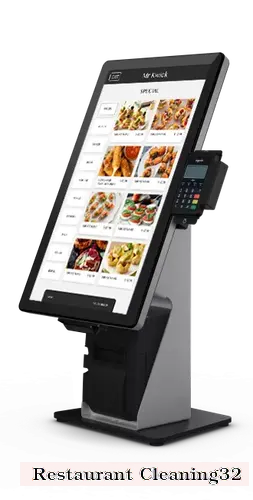Common Sense Restaurant Cleaning Practices
General Principles:
Maintain a clean and sanitary environment
This is essential for the health and safety of customers and staff.Establish a regular cleaning schedule
Determine the frequency and scope of cleaning tasks based on the size and type of restaurant.Use appropriate cleaning agents and equipment
Choose products that are effective and safe for use in a food-service environment.Train staff on proper cleaning techniques
Ensure that all employees understand the importance of cleaning and follow established procedures.Specific Areas to Clean:
Kitchen
* Clean all surfaces, including countertops, appliances, and floors.
* Disinfect cutting boards, knives, and other utensils.
* Clean and sanitize the refrigerator and freezer.
Dining Room
* Wipe down tables, chairs, and other surfaces.
* Vacuum or sweep floors regularly.
* Clean and disinfect restrooms.
Other Areas
* Clean and disinfect storage areas, offices, and break rooms.
* Empty trash cans regularly.
* Clean and disinfect door handles, light switches, and other high-touch surfaces.
Additional Considerations:
Use color-coded cleaning cloths
This helps prevent cross-contamination between different areas.Clean from top to bottom
This prevents dirt and debris from falling onto already-cleaned surfaces.Pay attention to details
Clean all nooks and crannies, including under appliances and behind furniture.Inspect regularly
Conduct regular inspections to ensure that cleaning standards are being met.Address spills and messes immediately
Promptly clean up any spills or messes to prevent them from becoming breeding grounds for bacteria.Benefits of Proper Restaurant Cleaning:
Improved customer satisfaction
A clean and sanitary environment enhances the dining experience for customers.Reduced health risks
Proper cleaning helps prevent the spread of foodborne illnesses and other health hazards.Increased employee morale
A clean workplace promotes a positive and productive work environment.Enhanced reputation
A well-maintained restaurant reflects positively on the business and attracts new customers.Compliance with regulations
Restaurants are required to meet certain cleaning and sanitation standards by law.
DISCLAIMER: This information is provided for general informational purposes only, and publication does not constitute an endorsement. Kwick365 does not warrant the accuracy or completeness of any information, text, graphics, links, or other items contained within this content. Kwick365 does not guarantee you will achieve any specific results if you follow any advice herein. It may be advisable for you to consult with a professional such as a lawyer, accountant, or business advisor for advice specific to your situation.

